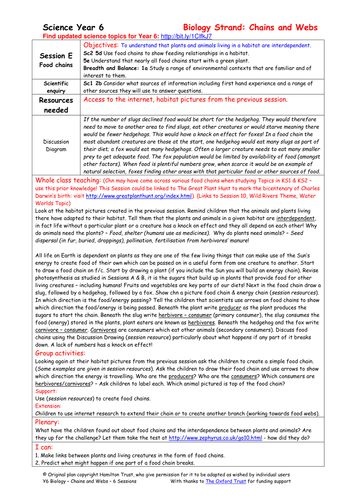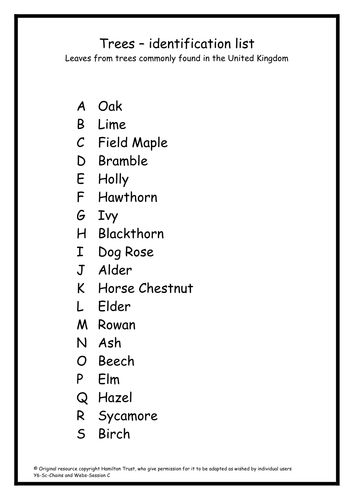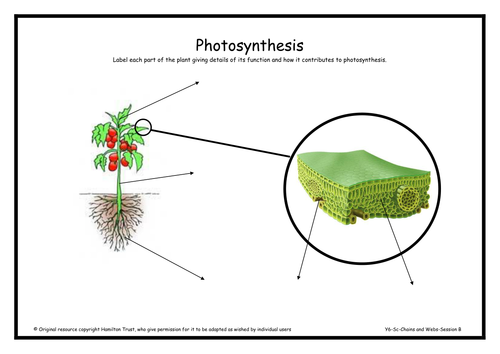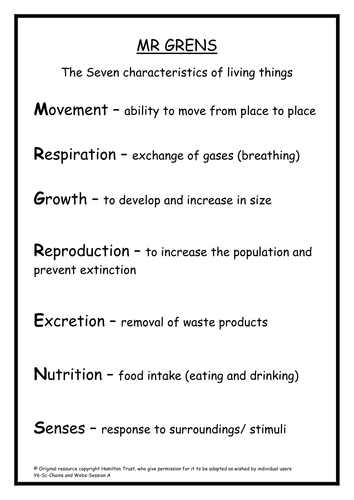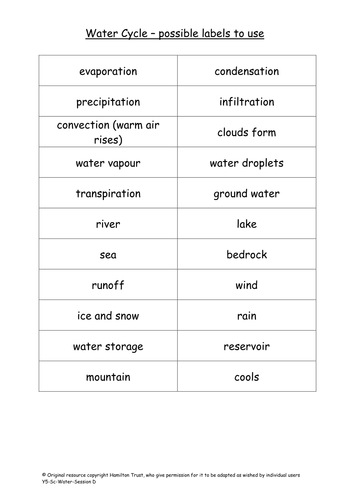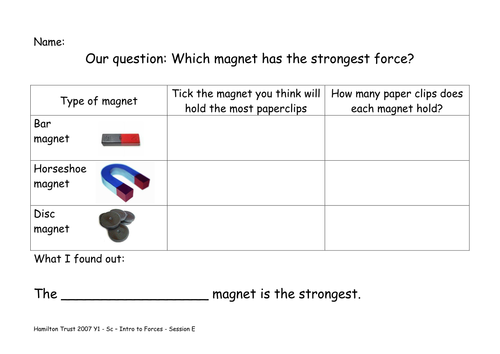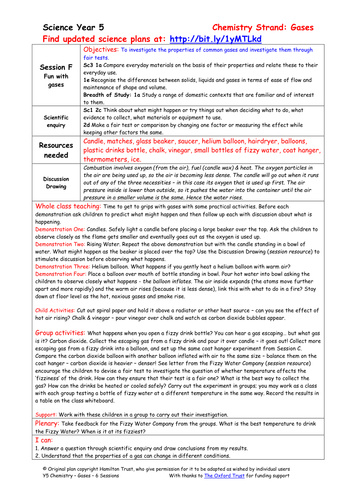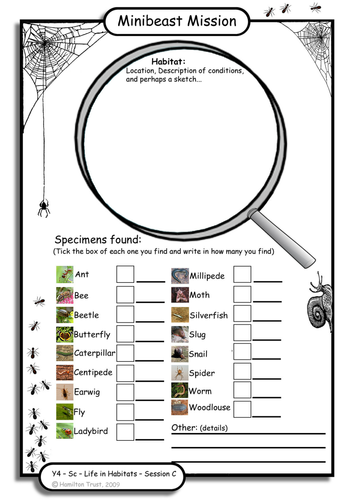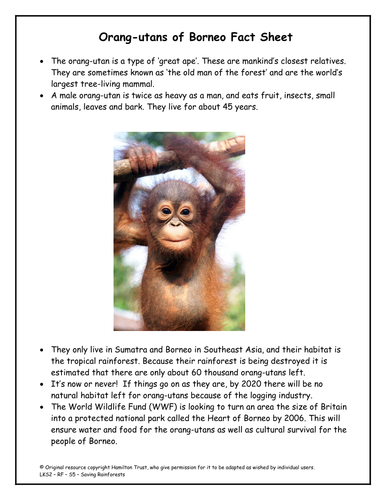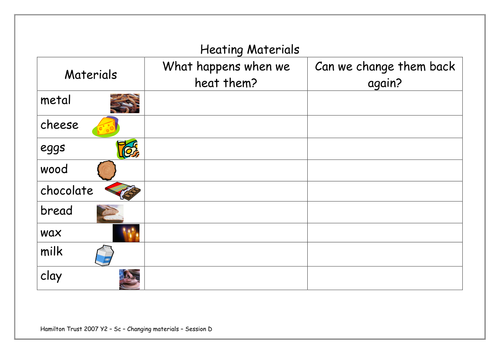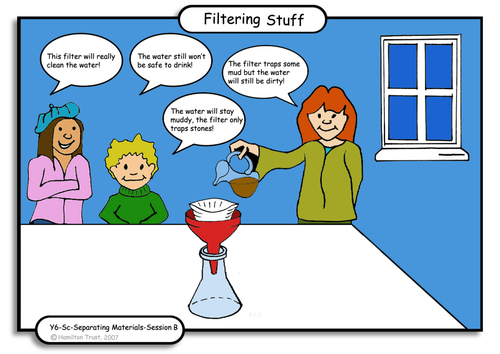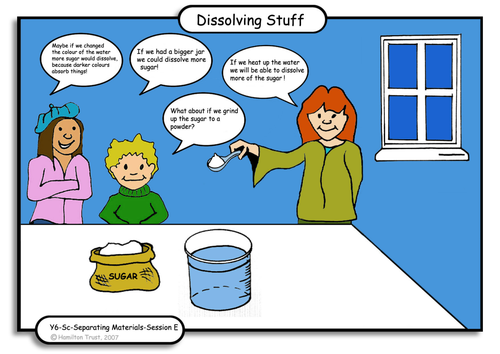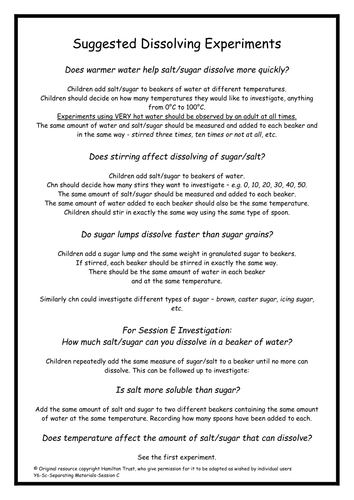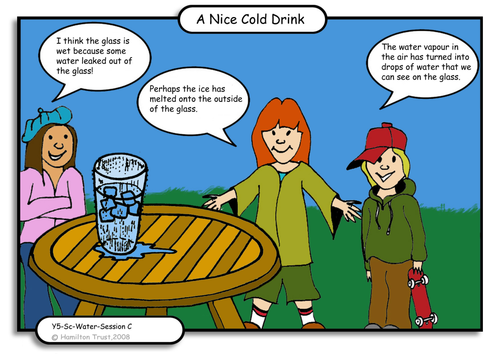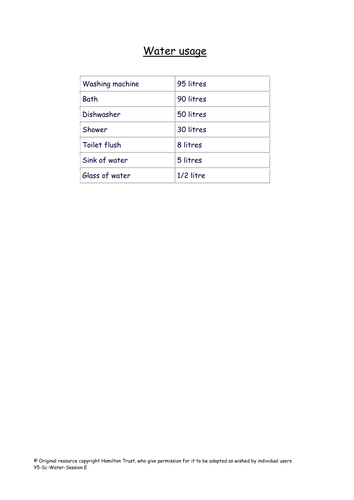
397Uploads
10045k+Views
11646k+Downloads
Elementary science

Food chains
All plants and animals living in a habitat are interdependent. In this session the children investigate a number of feeding relationships and create food chains to show the transfer of energy from the producers through the consumers.
Suitable for Y6 pupils.

Leaf key
Leaves are a useful way of identifying plants, but they come in so many shapes and sizes! Children take a closer look at the structure of some collected leaves before creating a dichotomous key to help identify them. Suitable for Y6 pupils.

Photosynthesis
Children check in on the patients from Session A and find out how they create their own food in the form of sugars using water, light and carbon dioxide. They consider the role of each plant part in photosynthesis.
Suitable for Y6 pupils.

Plant doctors
The Plant Drs are on call in this session & two very ill patients have arrived! What do they need to recover? Children revise the ideal conditions for plant growth é use them to watch the plants recover using time lapse photography. Suitable for Y6 pupils.

Water cycle
Children explain how evaporation and condensation are involved in the water cycle and describe all the water cycle processes. Identify the different forms of water that are seen in various weather conditions and the different clouds that are seen in our skies.
Suitable for Y5 pupils.

Explore push and pull with magnets
Explore pushes and pulls using magnets. Do a test to find out which is the strongest magnet out of three. Record findings. Explore toys and games that use magnets. Think about everyday objects that use the forces exerted by magnets. Suitable for Year 1 pupils.

Fun with gases
Candles burn, water fizzes, paper swirls spin and chalk gets dropped in vinegar in this practical session. Children then answer the call of the Fizzy Water company to find out if their water is fizzier ice cold! Suitable for Y5 pupils.

Field trip!
Organise a field trip in the school grounds, in the local environment or further afield. Children observe and/or collect minibeasts and record them and any evidence (including plants) to indicate why the habitat is suitable for those organisms.
Suitable for Year 4 pupils.

Endangered orang-utans (1)
Using the internet and fact sheets children find out more about the Orang-utans and why they have become endangered. What is being done to protect them and their habitats? What else can be done?

Investigate effect of heat
Start to explore and describe the way some materials change when they are heated. Practical class investigation about toasting bread, with a focus on observation.
Introduce concept of reversible and irreversible changes for more able learners.
Suitable for Year 2 pupils.

Chromatography case
A distressing message has been left in the classroom; someone thinks that Year 6 need less playtime and more homework!
The children spring into action using chromatography to identify the pen used and its owner!
Suitable for Year 6 pupils.

Filtering
Things become clearer in this session as children find out that some materials are insoluble creating mixtures when added to water. Children create their own filters to purify water but will it be safe to drink?
Suitable for Y6 pupils.

Investigate dissolving
It’s one lump or two… or even, maybe three or four in this session! Do all soluble materials dissolve in the same way? How much material can you dissolve in water? How can we increase how much material dissolves? Time to find out.
Suitable for Y6 pupils.

Separate solids
In this session children start by separating what they already know from what they want to find out, then start to separate materials using sieves of different sizes and magnets. They find out that these methods have real life applications.
Suitable for Y6 pupils.

Solutions
This session will create quite a stir as the children investigate the factors which affect how some materials dissolve in water. They raise their own questions, devise fair tests and create line graphs to find answers.
Suitable for Y6 pupils.

Evaporation and condensation
Look at evaporation and condensation of water as reversible changes. Discuss everyday examples & uses of evaporation and condensation. Plan and carry out an investigation into the factors that speed up evaporation.
Suitable for Y5 pupils.

Circuit repairs
Time to call out the experts! Children start the session with some drama before turning their attention to some circuits in need of attention!
Children repair broken circuits and identify repairs needed using circuit diagrams.
Suitable for Y6 pupils.

Circuit revision
In this the first of six sessions the children get some hands on experience and revision of what they already know through a circus of circuit activities.
Can they complete and repair circuits? What dangers does electricity pose?
Suitable for Y6 pupils.

Water in everyday life
Remind children how important water is to all living organisms. Look at how little of the water present on earth is fresh and therefore drinkable.
Children investigate how animals and plants adapt to arid conditions and create posters to encourage us to save water.
Suitable for Y5 pupils.

Symbols
In this session symbols say it all! Children discover the conventions that are used in circuit diagrams before using them to create their own. Can they create working circuits from a diagram? Time to find out!
Suitable for Y6 pupils.

